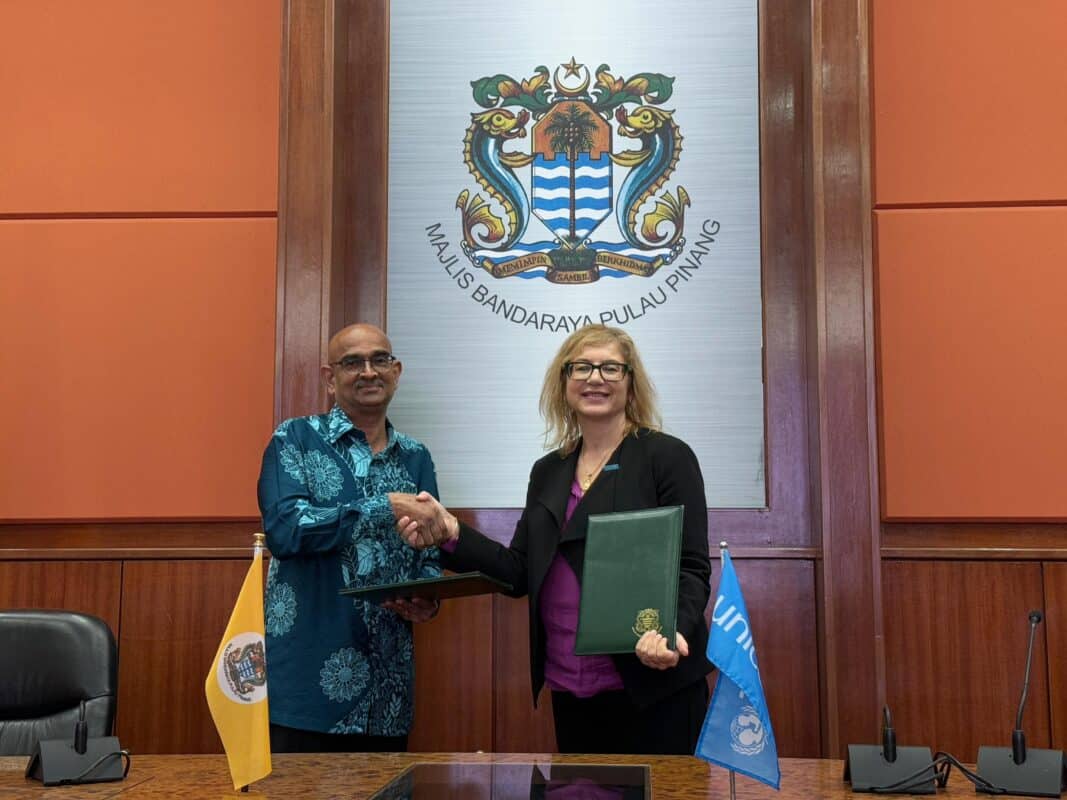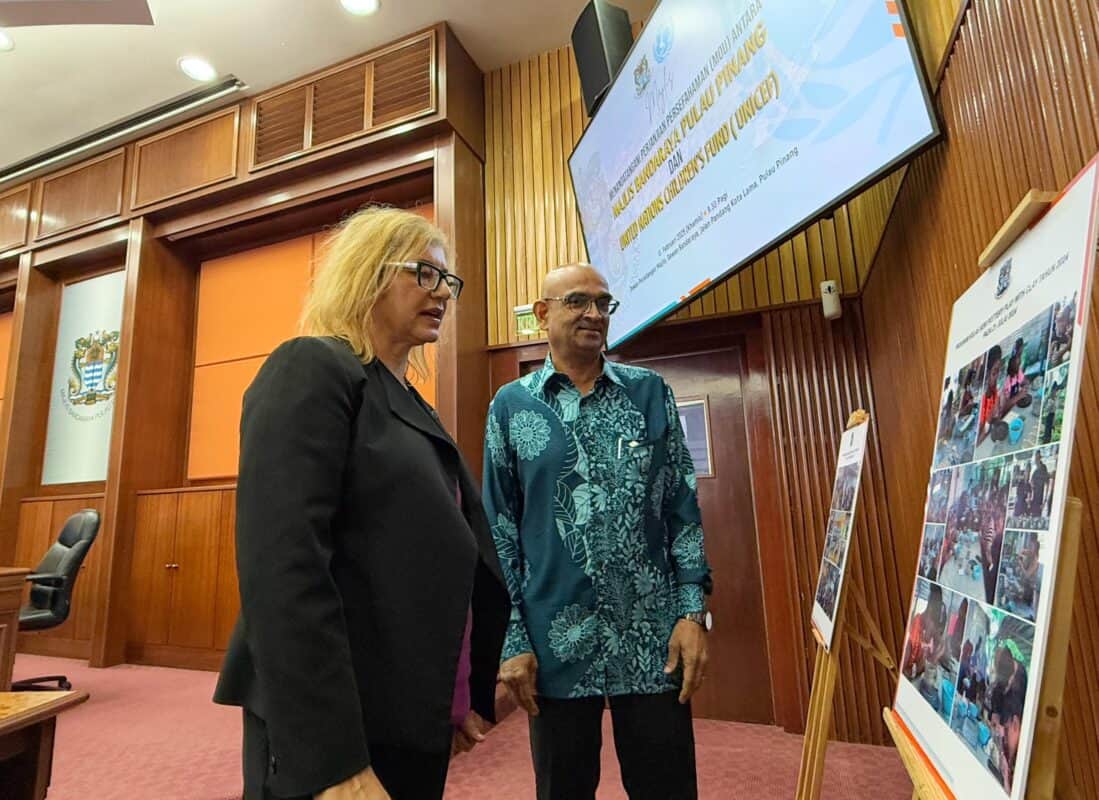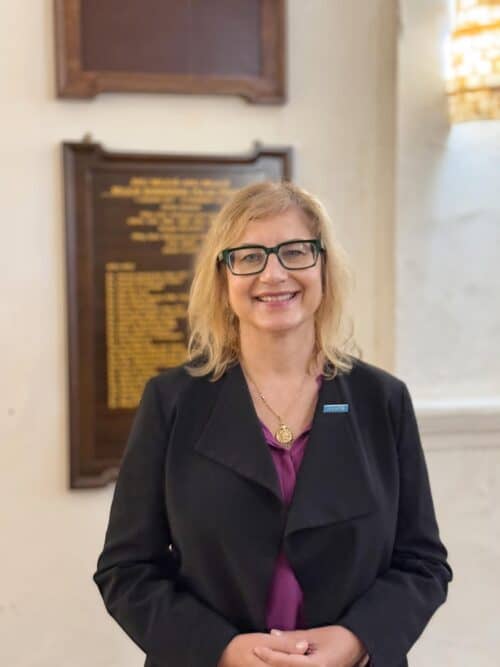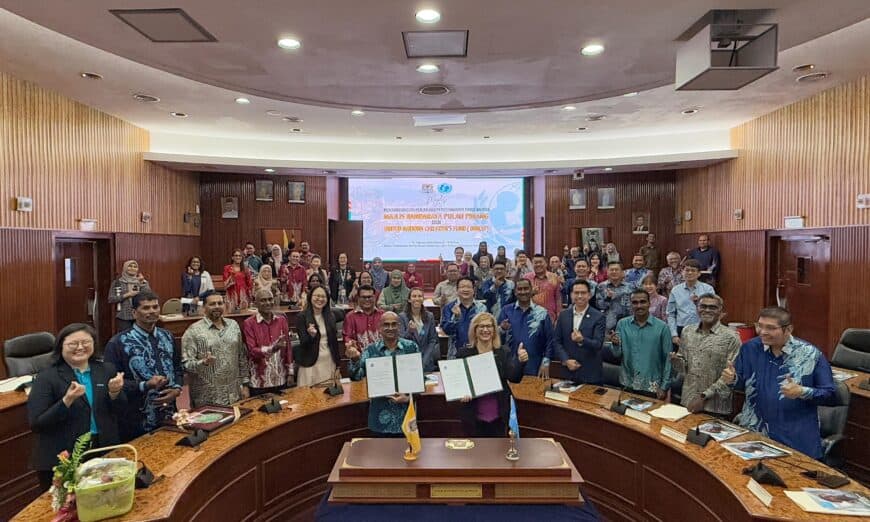THE Penang Island City Council (MBPP) and the United Nations Children’s Fund (Unicef) have signed a Memorandum of Understanding (MoU), marking Penang island’s journey towards becoming a Child-Friendly City in the state – the second in Peninsular Malaysia.
With this MoU, Penang joins a global network of over 3,000 cities committed to integrating child-friendly policies into urban development, fostering a safer and more inclusive environment for every child.
MBPP mayor Datuk A. Rajendran signed the MoU on behalf of MBPP, while UNICEF Malaysia deputy representative Sanja Saranovic represented Unicef.
Also present were MBPP secretary Cheong Chee Hong, MBPP engineering director Cheah Chin Kooi, department heads and MBPP city councillors.
Petaling Jaya was recognised as Malaysia’s first Child-Friendly City in 2023, while Sarawak launched the country’s first state-led cohort, with all seven municipalities participating.

Rajendran emphasised that children are the nation’s most valuable asset, serving as the backbone of sustainable development and the driving force behind the country’s future progress.
“Approximately 22.5% of Penang’s 1.8 million people, or about 405,400 individuals are children under 18. Investing in their well-being, safety and participation is therefore crucial.
“Given this significant percentage, it is imperative that future development and planning in Penang take into account the needs and interests of children. They must not be left behind, but actively involved in shaping and contributing to the state’s progress and prosperity,” Rajendran said in his speech.
While MBPP has already implemented various initiatives to prioritise child welfare, Rajendran said the council would learn from Petaling Jaya and UNICEF to further its commitment and vision of establishing Penang as a Child-Friendly City.
“There is always room for improvement. We will also listen to the children,” Rajendran added.

Rajendran also highlighted several urban planning guidelines designed to ensure that child-friendly infrastructure is developed not solely based on developers’ interests but with a strong focus on children’s comfort, safety, and developmental needs.
These guidelines include provisions for the conversion of residential buildings into kindergartens, nurseries, childcare centres, and elderly care centres.
“Safe, easily accessible, and visible play spaces are essential for children’s growth. To support this, MBPP has provided 161 play equipment and 357 open spaces for children’s sports and recreation.
“To enhance safety, activities such as alcohol consumption, motor vehicle use, and pet access are prohibited in these play areas. Additionally, rubber safety mats have been installed to minimise the risk of injuries,” he said.
MBPP has also introduced Makerspace facilities to spark children’s interest in Science, Technology, Engineering, Arts, and Mathematics (STEAM). Currently, two Makerspaces have been established – one in Balik Pulau (southwest district) and another in George Town (northeast district).
Other MBPP initiatives include providing facilities to NGOs focused on child welfare at minimal rental rates, collaborating with the District Education office and Penang Green Council on the Green School Award programme, and deploying 32 school crossing patrol officers at selected schools.
Additionally, he announced that MBPP, in collaboration with the National Cancer Society Malaysia (NCSM) and the Surveyors, Planners, Engineers, Architects & Developers Committee (SPEAD), has established the NCSM-MBPP Home of Hope.
“This care centre for children undergoing cancer treatment will be officially inaugurated by the Chief Minister of Penang on February 26,” Rajendran said.
“MBPP remains open to all forms of collaboration and is ready to support initiatives that promote Penang as a Child-Friendly City.”

Saranovic said the Child-Friendly City Initiative (CFCI), launched in 1996, aims to support local authorities in upholding children’s rights under the UN Convention on the Rights of the Child.
She added that CFCI ensures children can grow, learn, and play in a safe and inclusive environment.
“We must invest in our future leaders and innovators. We must also ensure that children’s rights are respected,” Saranovic said.
She emphasised that the Child-Friendly City Initiative focuses on three key areas:
- Raising awareness about children’s rights among both children and adults.
- Encouraging meaningful child participation in urban planning and policy-making through the Children’s Council and other mechanisms.
- Creating a safe and inclusive environment by designing parks, playgrounds, and public transport systems that are accessible to all children, including those with disabilities.
Saranovic also reaffirmed Unicef’s commitment to providing continuous support to MBPP in realising its vision of becoming a child-friendly city.
Story by K.H. Ong
Pix by Darwina Mohd Daud

